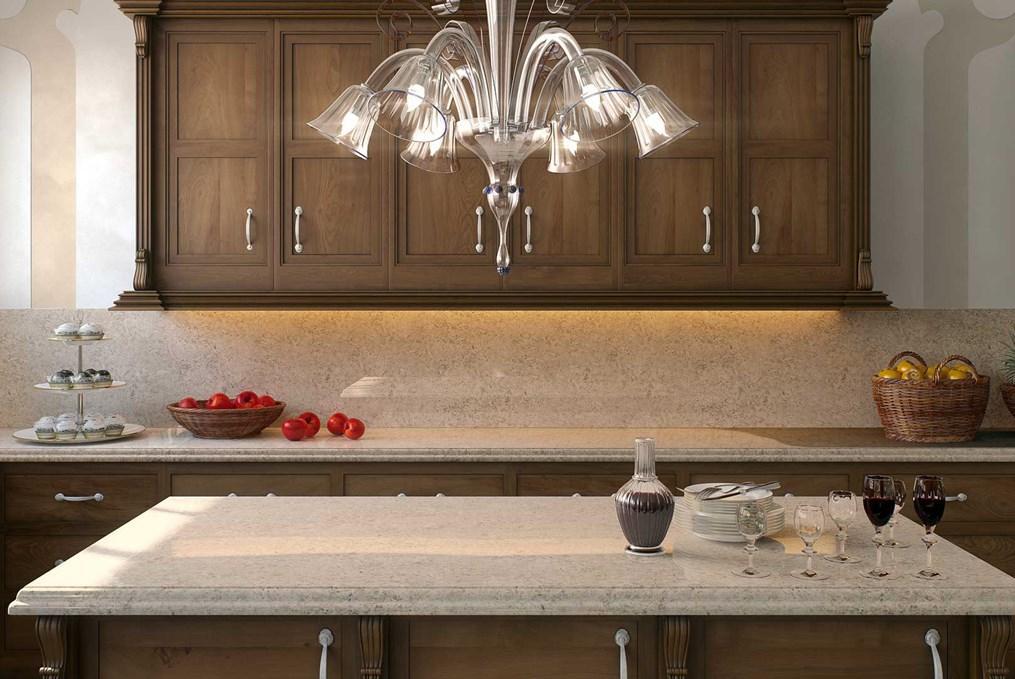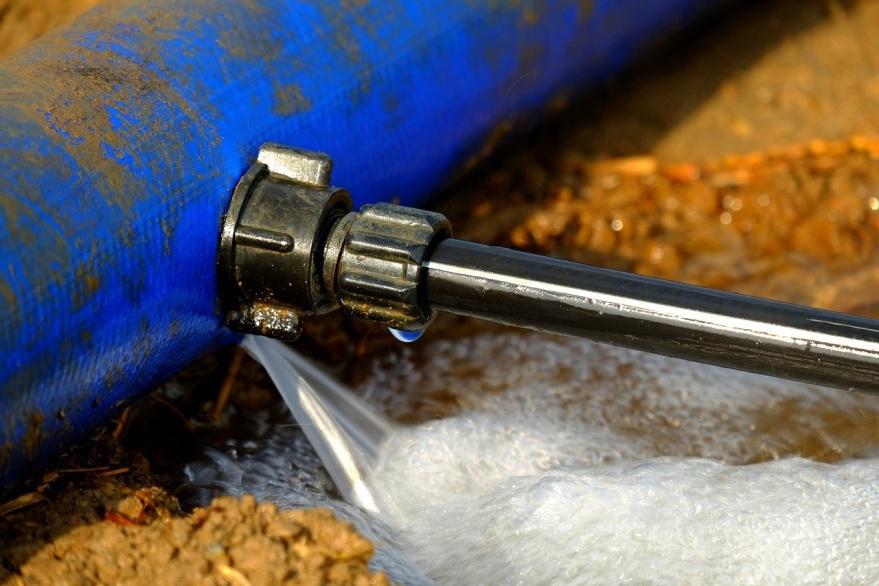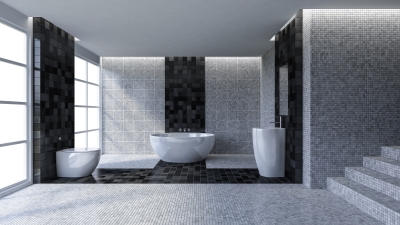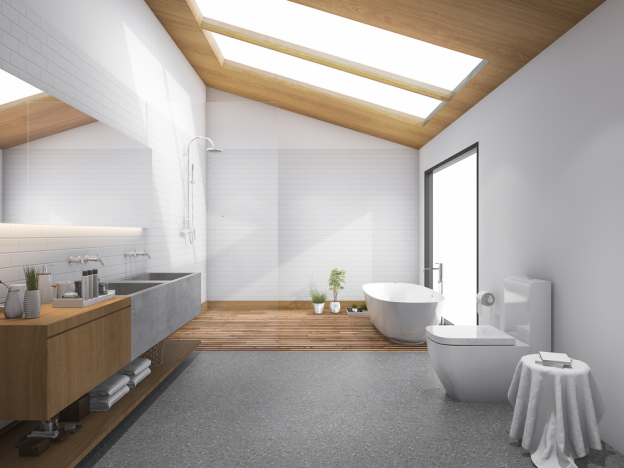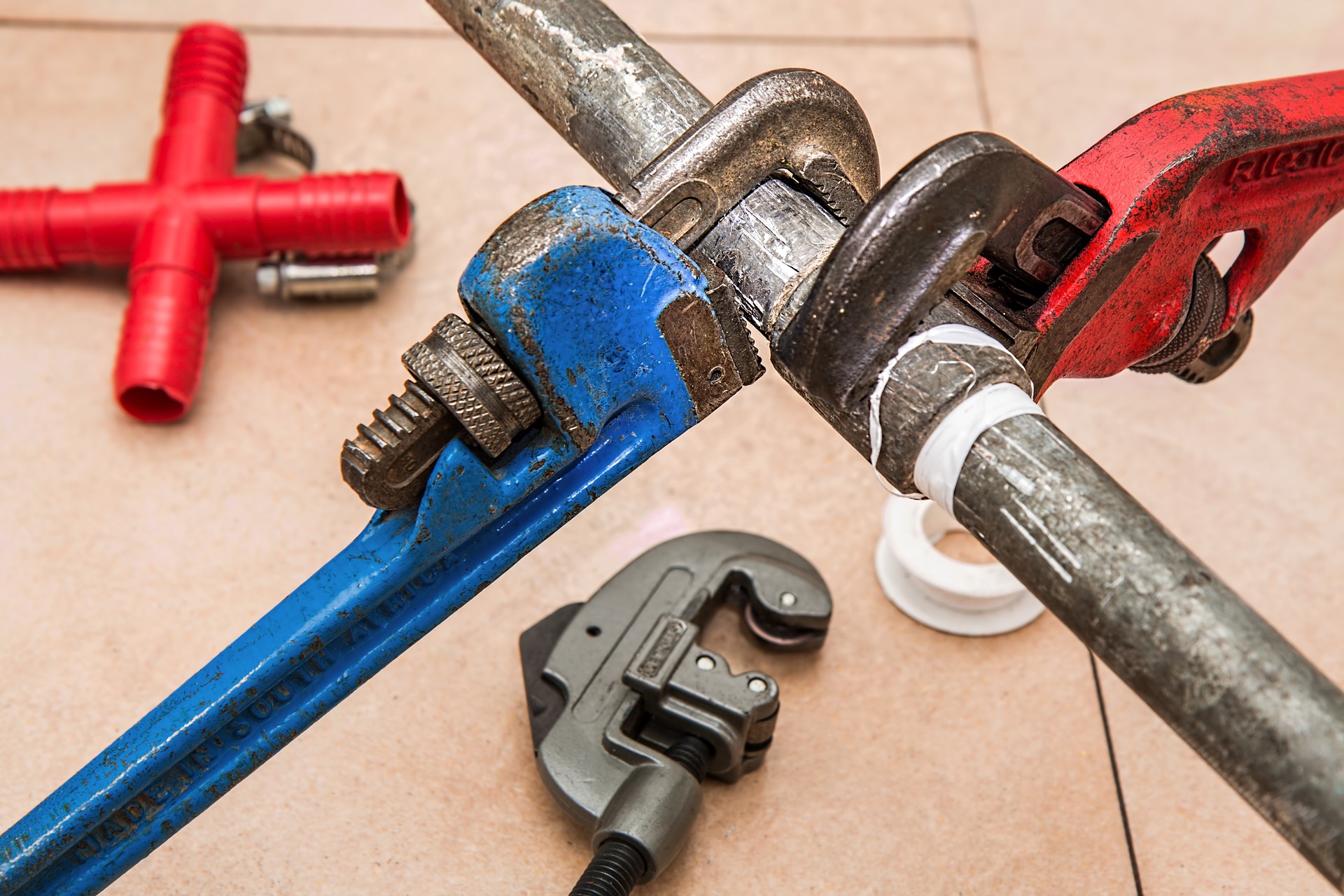#1. Quartz Countertops Aren’t Just Cheap Versions of Natural Stone
Perhaps the most common misconception about quartz kitchen countertops is that they’re for those who can’t afford natural stone surfaces like granite.
On the contrary, the best quartz countertops cost within the same ballpark as those made from premium natural stones like granite.
People are willing to pay between $50 and $100 per square foot for quality quartz countertops because they offer greater durability than natural stone and do not require maintenance or resealing.
In other words, with quartz countertops you pay $50 to $100 per square foot upfront, and then you’re good to go for life. With natural stone countertops, you pay roughly the same and then have to reseal and refinish them as often as twice annually.
#2. Quartz Kitchen Countertops Are Actually 93% Natural
Caesarstone, the most popular quartz kitchen countertops manufacturer, creates their quartz countertops using a blend consisting of 93% natural quartz aggregates. This quartz is mixed with resins and pigments to produce a material that can be customized and molded into just about any pattern, colour, and shape imaginable.
As such, you get a material that combines the beauty of natural rock with the flexibility of engineered surfaces.
#3. Quartz Never Needs to be Resealed

As we hinted at earlier, quartz requires no maintenance. That means you don’t have to reseal it. This can be a bit counter-intuitive considering that quartz countertops often resemble natural stones like marble and granite, right down to the grain.
But it’s true; quartz countertops really do never need to be resealed. In simple terms, the finish is baked into the material. The high heat and pressure quartz countertops get subjected to means this finish will never wear off; the material is the finish.
#4. Quartz and Quartzite Are Not the Same
You’d be forgiven for thinking that they were just subtle variations on each other. In reality, quartzite is a natural stone that goes from mining to refining for use as a countertop material.
It is more akin to granite or marble in this sense; it cannot be molded and comes with the added downside of being porous and requiring resealing about twice a year.
#5. Quartz is Very Environmentally-Friendly
One might assume that since quartz kitchen countertops are engineered using resins and pigments, they’re not environmentally-friendly.
Sure, they’re not as environmentally-friendly as something like paper composite — but quartz countertops have a very long lifecycle, meaning they do not need to be disposed of as frequently as other materials.
Quality quartz manufacturers like Caesarstone also go to great lengths to achieve certification concerning their environmental-friendliness. Reputable manufacturers understand that most consumers are concerned about the environment.
#6. Quartz is Very Affordable in the Long Run
As mentioned earlier, quartz countertops cost within the range of other premium materials like natural stone. However, because quartz requires such little maintenance, people who use quartz in the kitchen find that it saves them tons of money in the long run.
Refinishing natural stone countertops can cost as much as $1,200 at a time. That’s a good chunk of change — as much as a third of the total countertop cost in some cases.
Over the course of the countertop’s lifespan, many consumers find they spend many multiples on maintaining natural stone than the surface originally cost.
#7. Quartz is Good for More Than Just Countertops

As quartz kitchen countertops continue to balloon in popularity, people are discovering all sorts of uses for them. That includes flooring, bathroom surfaces, showers, and more.
This is thanks in large part to how malleable engineered stone is. Manufacturers can mold it into just about any shape designers can think of.
You’ve almost certainly seen, touched, sat on, and walked on quartz in commercial spaces, for example.
#8. Quartz is One of the Most Abundant Materials on Earth
While quartz countertops can resemble rarer, luxurious materials, quartz itself is actually the most abundant mineral on earth.
This should come as no surprise considering quartz is made from oxygen and silicon, which are the two most abundant elements on the planet.
Quartz’s abundant nature (it makes up more than 10% of all land and 20% of earth’s crust) is yet another reason converting this material into countertops is environmentally-friendly.
#9. The ‘Quartz Look’ is Incredibly Versatile
Different combinations of pigments and resins can be combined to make quartz look like any number of surfaces. From granite to concrete, marble, porcelain, and even entirely unique substances, quartz is by far the most versatile countertop material out there.
#10. Quartz Countertops Are Made with the Bretonstone System
The Bretonstone system was invented in the 1970s and involves combining vibration and compression under a vacuum to turn the various ingredients that made up quartz kitchen countertops into an extremely hard and durable slab.
This system is licensed for use by companies such as Caesarstone. Most manufacturers will add their own unique strategies for producing distinctive looks but at the foundation, you’ll always find the Bretonstone system behind quality quartz kitchen countertops.
Quartz Kitchen Countertops: Conclusion
For those seeking the best, quartz countertops are indisputably it. Whether using quartz in the kitchen, bathroom, or even commercial environments, it represents an incredible value and is environmentally-friendly, durable, and versatile.
After reading this article, you should have a pretty solid understanding of what makes quartz kitchen countertops such a popular option.
